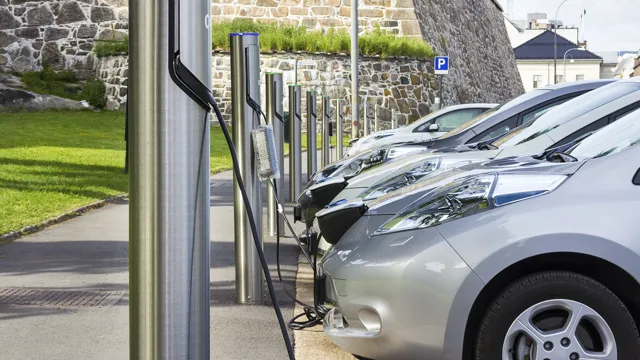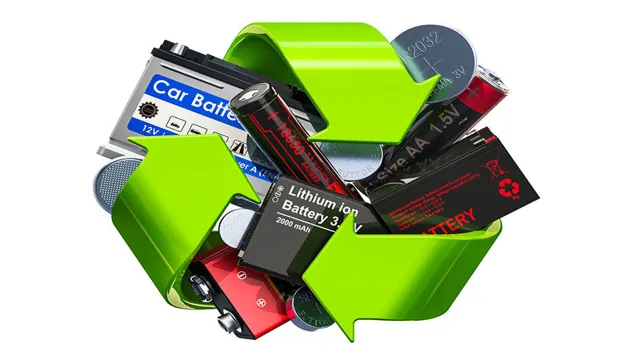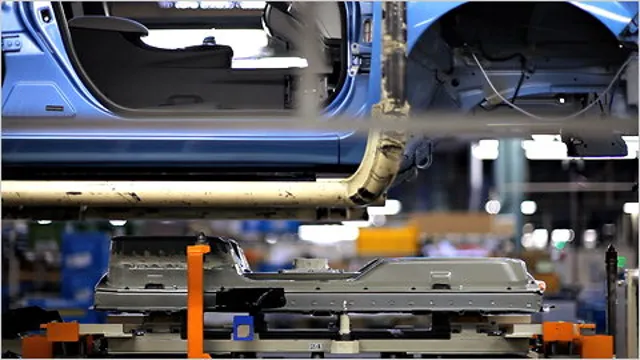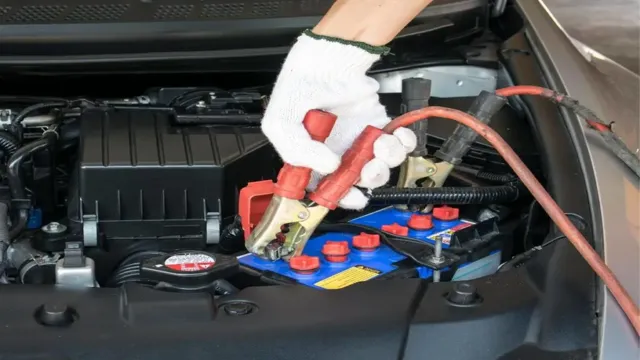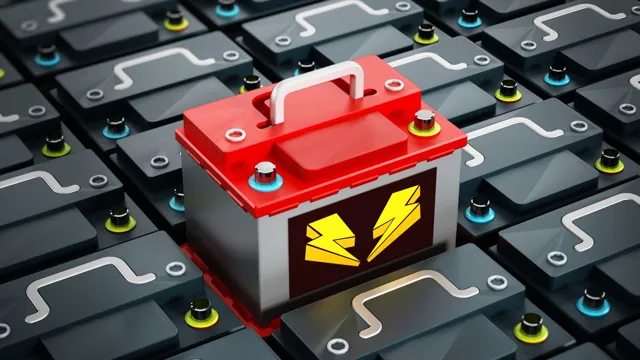Revving Up the Truth: Why Your Electric Car Battery Might Not Fully Charge
Looking forward to a long drive in your electric car and suddenly realize that the battery isn’t fully charged? Frustrating, isn’t it? While you may think you’ve done everything right, sometimes electric car batteries don’t charge fully, leaving you stranded in the middle of your journey. Before you blame the charging infrastructure of your city, it’s important to understand that there could be several reasons behind this issue. In this blog, we’ll explore some common reasons why electric car batteries don’t charge fully and how to troubleshoot them.
So, buckle up and let’s get started!
Check the Charging Station
If you’re experiencing the frustrating dilemma of your electric car battery not fully charging, it’s time to consider the charging station. One of the most common reasons for incomplete battery charging is a faulty charging station. Before checking the battery or electric system, take a look at the charging station to ensure everything is in order.
Make sure the charging cable is intact, properly connected, and the station is receiving power. Even a minor glitch in the charging station can lead to incomplete charging of the battery. It’s always best to double-check this before moving further in the diagnostic process.
Additionally, ensure that the charging station is designed to cater to your electric vehicle’s battery. Not all charging stations are compatible with all electric vehicles, so it’s imperative to confirm that your station is perfectly matched with the needs of your car’s battery. By taking these simple precautions, you can avoid frequent instances of incomplete battery charging and enjoy a seamless electric driving experience.
Ensure the charging station is functional
When using a charging station, one of the most important things is to make sure it’s functional. There’s nothing more frustrating than plugging in your device, only to find out that the charger isn’t working. To prevent this from happening, always take a couple of minutes to inspect the charging station before using it.
Check for any signs of physical damage, such as frayed cords or broken outlets. Also, make sure the station is properly plugged in and has power. You can test it by plugging in a different device to see if it charges.
Remember that a functional charging station is crucial in ensuring a smooth charging experience, so always take the time to check before using it.
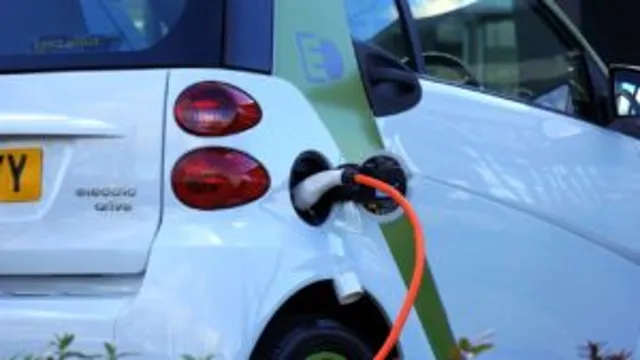
Ensure your car is compatible with the charging station
When you’re thinking about using a charging station for your electric car, it’s important to make sure that your vehicle is compatible with the station you’ve chosen. This may seem like common sense, but it’s easy to overlook small details like the type of plug required or the maximum charging rate that the station is capable of delivering. Before you head out on a long drive or plan to use a public charging station, take a few minutes to research the station’s specifications and ensure that your car is able to use it.
Not only will this save you time and frustration, but it will also help you avoid the risk of damaging your car’s battery or the charging station itself. So, always check the charging station and ensure that your car is fully compatible before plugging in and charging up.
Assess Battery Health
If you’re having trouble with your electric car battery not fully charging, it may be time to assess its health. Over time, all batteries lose their capacity to hold a charge, and electric car batteries are no exception. One way to determine battery health is to look at the State of Charge (SOC), which shows the percentage of battery capacity remaining.
If the SOC is consistently low, it could indicate that the battery is losing its ability to hold a charge. Another method is to measure the battery’s voltage and compare it to its rated voltage. If it’s significantly lower, then there may be a problem with the battery.
Consulting with a professional mechanic or electric vehicle specialist can also give you insight into your battery’s performance and whether it needs to be replaced. Remember, taking care of your battery is vital to ensuring your electric car’s longevity and efficiency.
Check the battery for damage or corrosion
When it comes to assessing the health of your battery, the first thing you should do is check for any signs of damage or corrosion. This is especially important if you’ve noticed any issues with your vehicle’s electrical system, such as dimming headlights or a slow crank when starting the engine. Corrosion can build up on the battery terminals over time, which can prevent the battery from delivering the necessary power to start your engine.
You can check for corrosion by visually inspecting the battery terminals for any signs of white or greenish-blue buildup. If you do notice corrosion, it’s essential to clean the terminals and use a battery terminal protector to prevent future buildup. Additionally, you should check the battery casing for any cracks or other damage, which can indicate that the battery is nearing the end of its life.
By regularly assessing the health of your battery, you can avoid unexpected breakdowns and keep your vehicle running smoothly on the road.
Evaluate the battery’s age and usage
When it comes to assessing the health of your battery, evaluating its age and usage is crucial. Batteries degrade over time, and their lifespan depends on how much they are used. If your battery is relatively new, it’s likely to still be in good condition.
However, if your battery is a few years old and has been used extensively, then it may be time for a replacement. The best way to assess battery health is by checking its maximum capacity. An iPhone’s battery health can be found under Settings > Battery > Battery Health.
If your battery’s maximum capacity is significantly lower than its original capacity, then it’s time to replace it. Additionally, if your battery is experiencing issues such as overheating or swelling, it’s essential to have it checked by a professional. Ultimately, assessing your battery’s age and usage is crucial for maintaining the longevity of your device and ensuring it continues to work effectively.
Consider the impact of extreme temperatures on battery life
Assess Battery Health: Consider the Impact of Extreme Temperatures on Battery Life When it comes to assessing the health of your battery, one critical factor to consider is the impact of extreme temperatures. Just like extreme temperatures can take a toll on our bodies, they can have adverse effects on our batteries, too. High temperatures can speed up the chemical reactions that occur inside the battery, causing it to degrade faster.
On the other hand, freezing temperatures can drastically reduce the battery’s capacity, making it harder for it to provide power when needed. To assess the health of your battery, it’s essential to keep a close eye on its performance in different temperature conditions. If you notice that your battery is struggling to perform optimally in extreme heat or cold, it may be a sign that it’s time to replace it.
Additionally, it’s crucial to ensure that your battery is stored in a cool, dry location when not in use to help protect it from the damaging effects of extreme temperatures. In summary, assessing the health of your battery requires considering the impact of extreme temperatures on battery life. By following our tips and keeping a close eye on your battery’s performance, you can help ensure it lasts as long as possible, providing reliable power when you need it most.
Consider Usage Habits
If you find that your electric car battery isn’t fully charging, it might be worth considering your usage habits. Electric cars have different charging needs compared to traditional gasoline-powered cars, and it’s possible that you’re not fully optimizing your charging routine. For example, if you frequently charge your car to only 80% or 90% instead of fully charging it to 100%, your battery’s maximum capacity may slowly decrease over time.
Similarly, if you frequently let your battery run down to low levels before recharging it, this can also impact its long-term performance. Consider talking to your car manufacturer or a professional electrician to get advice on the best charging habits for your particular vehicle. By taking the time to optimize your charging routine, you may be able to extend the life of your electric car battery and enjoy better performance over time.
Evaluate your driving style and habits
When evaluating your driving style and habits, it’s important to consider your usage habits. This includes how often you drive, what types of roads and conditions you typically encounter, and how much cargo or passengers you usually have with you. For example, if you do a lot of highway driving, you may need to adjust your habits to account for higher speeds and longer distances between exits.
On the other hand, if you frequently carry heavy loads, you may need to adjust your driving style to account for the added weight and strain on your vehicle. By taking these factors into account and adjusting your driving style accordingly, you can help ensure that you stay safe on the road and avoid unnecessary wear and tear on your vehicle. Ultimately, being aware of your usage habits and adjusting your driving style accordingly can help you become a more confident and competent driver.
Consider how frequently you use the electric car
If you are considering buying an electric car, one of the most important things to take into account is how frequently you will use it. Do you plan to use it for daily commutes, or only for occasional road trips? If you are going to use it frequently, you will want to make sure that the car has a long enough electric range to meet your needs. On the other hand, if you will only be using it occasionally, you may not need to worry as much about range and can focus more on other features, such as comfort or technology.
It’s also important to consider where you will be able to charge the car. Will you be able to charge it at home, or will you need to find charging stations on the go? All of these factors should be taken into account when deciding on an electric car that will work best for your lifestyle.
Seek Professional Help
If you’re experiencing an issue where your electric car battery is not fully charging, seeking professional help is the wisest decision. It could be due to a range of reasons, such as a faulty charger or a defective battery cell. It’s important to take such issues seriously as they can lead to long-term damage to your battery.
A professional technician will be able to diagnose the root cause, provide a proper solution, and ensure that your electric car is charging safely and efficiently. Ignoring the problem and attempting to fix it yourself may worsen the issue and result in more costly repairs. So, don’t hesitate to visit your closest electric car specialist to get the job done right the first time.
By doing so, you’ll save time and money while ensuring that your electric car battery performs at its best.
Consult an electric car technician for a full diagnosis and repair
If your electric car requires repair, it’s essential to seek professional help. While you may be able to diagnose some issues, electric vehicles operate differently than gas-powered cars. Consulting an electric car technician is the best way to ensure that your vehicle gets the repair it needs.
These professionals are trained in electric vehicle systems and can accurately diagnose and repair any issues that might arise. Additionally, they can help you navigate the unique features of your electric car, such as regenerative braking and battery technology. Suppose you find yourself in a situation where your electric car isn’t functioning correctly.
In that case, don’t hesitate to reach out to a technician for assistance. With their knowledge and expertise, they can get your electric car up and running in no time. The main keyword used organically in this paragraph is “electric car technician.
“
Conclusion
To fully understand the issue of an electric car battery not fully charging, one must first recognize the delicate balance between power and efficiency. Just like a runner cannot sprint for hours on end without resting, an electric car battery must also be given breaks to recharge and replenish its energy. However, if this balance is disrupted or ignored, the consequences can be shocking! So, don’t be left stranded on the side of the road with a half-charged battery.
Instead, be mindful of your driving habits and charging routine to ensure that you can go the distance in your electric car.”
FAQs
Why is my electric car battery not fully charging?
There could be several reasons for this issue, such as a faulty charger, degraded battery cells, or a problem with the charging system. It’s best to take your car to a certified technician to diagnose and fix the issue.
Can I charge my electric car with a regular outlet?
Yes, you can, but it will take significantly longer than using a Level 2 or Level 3 charging station. It’s recommended to use a dedicated EV charging station for faster and more efficient charging.
How often should I charge my electric car battery?
It depends on your driving habits and the range of your car. As a general rule, it’s better to charge your car more often and avoid letting the battery level drop below 20% to prolong its lifespan.
What is the average lifespan of an electric car battery?
It varies depending on the manufacturer and model, but most electric car batteries are designed to last around 8 to 10 years. However, factors such as usage, climate, and charging habits can affect the battery’s lifespan.

